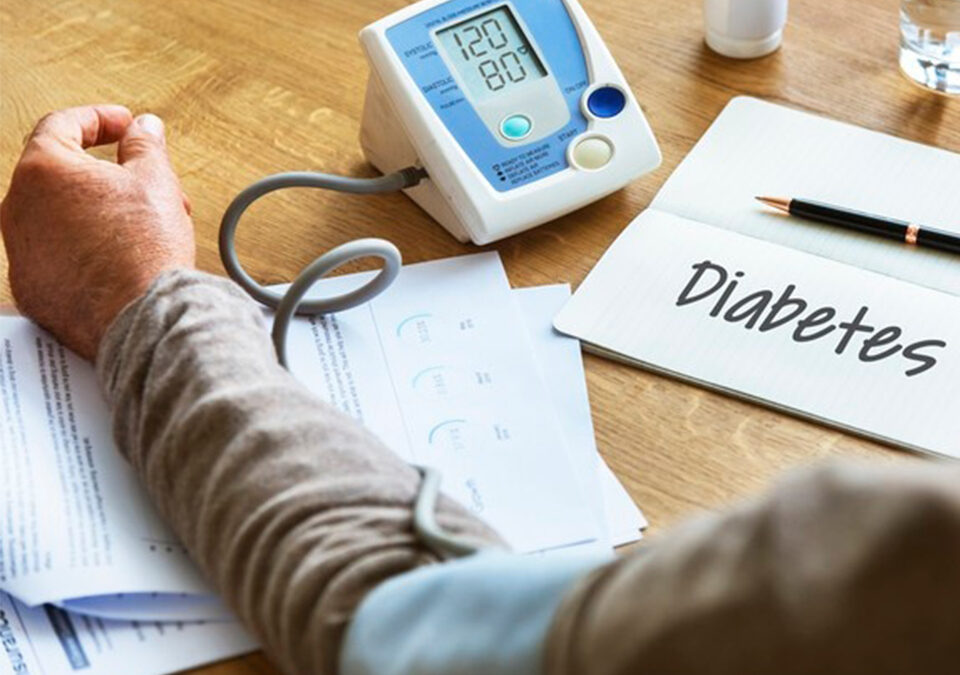
The Abnormal Albuminuria Syndrome In Diabetics
December 9, 2021
Can Diabetes Cause Constipation?
December 9, 2021People with diabetes often suffer from diabetic neuropathy, in which high blood sugar levels damage nerves in the body, especially in the legs and feet. However, the symptoms of diabetic neuropathy can vary from person to person, depending on the nerves damaged. Some people may experience pain and numbness in their legs, while others may experience problems in the digestive tract, urinary tract, heart, etc. Although diabetic neuropathy affects about half of the people with diabetes, you may still prevent it or slow down its progression with effective diabetes management.
Neurological Complications of Diabetes And Their Symptoms
There are mainly four types of diabetic neuropathy. The symptoms of all four types differ from each other. People with diabetes may suffer from more than one type of nerve damage.
- Peripheral Neuropathy:
Also known as distal symmetric peripheral neuropathy, it is the most common type of nerve damage in diabetes. It usually starts affecting the feet first and then moves towards hands and arms. Symptoms of peripheral nerve damage include:
- Numbness
- Tingling or burning sensation
- Pain or cramps
- Foot problems such as ulcers and infections
In peripheral neuropathy, you may not realise injuries on your foot and may suffer from infections over time. It may also cause foot amputations.
- Autonomic Neuropathy:
In autonomic neuropathy, the nerves of your heart, bladder, stomach, intestines, sex organs and eyes get damaged. Some common symptoms of autonomic neuropathy include:
- Bladder or bowel problems such as urine leakage, constipation, etc.
- Nausea, vomiting and loss of appetite caused due to gastroparesis
- Decreased sexual response
- Changes in your eye’s ability to adjust from light to dark
- Unawareness of the symptoms of hypoglycemia
- Proximal Neuropathy:
Also known as diabetic amyotrophy, proximal neuropathy affects the nerves of thighs, hips, buttocks or legs. It can also damage the nerves of the abdominal and chest area. The symptoms of proximal neuropathy generally include:
- Severe pain in hips, thighs or buttocks
- Trouble in rising from a sitting position
- Severe stomach pain
- Focal Neuropathy:
Also known as mononeuropathy, this type of neuropathy causes damage to specific nerves, most often in your hands, legs, torso or head. The symptoms of focal nerve damage include:
- Difficulty in focusing or having double vision
- Experiencing ache behind one eye
- Paralysis on one side of your face, also known as Bell’s palsy
- Experiencing numbness or tingling sensation in your hands and fingers
- Weakness in your hands, causing you to drop objects
Risk Factors of Neurological Disorders In Diabetes

The following factors can increase the risk of getting diabetic neuropathy:
- Having uncontrolled blood sugar levels, which increases the risk of all diabetes complications
- Having diabetes for a long time, especially if it is uncontrolled
- Being overweight or obesity
- Having kidney diseases
- Having high cholesterol
- Smoking
Complications Of Diabetic Neuropathy
- Autonomic neuropathy can cause unawareness of the symptoms of hypoglycemia or low blood sugar levels.
- Due to nerve damage, injuries or infections in the foot may go unnoticed and even lead to amputations.
- Nerve damage can make you more prone to getting urinary tract infections. It can also cause urinary incontinence or urine leakage.
- Diabetic neuropathy can cause a sharp drop in blood pressure levels, making you feel dizzy, especially while rising from a sitting position.
- If nerve damage affects your digestive tract, you may experience constipation, diarrhoea, bloating, indigestion, etc.
- Autonomic neuropathy may affect the nerves of your sex organs and may cause erectile dysfunction in males. Women can experience vaginal dryness and reduced libido.
- You may also experience increased or decreased sweating as nerve damage can disrupt the functioning of your sweat glands.
Tips To Prevent Neurological Disorders Of Diabetes
- Manage your blood sugar levels efficiently. If your blood sugar levels are in the target range, you may easily prevent or delay the progression of diabetic neuropathy.
- Maintain your blood pressure levels.
- Exercise regularly and stay physically active.
- Maintain healthy body weight.
- Quit smoking and avoid alcohol.
- Eat a healthy and balanced diet.
- Always take your medicines as prescribed by the doctor.
- Take care of your feet. Check your feet daily, keep them clean, dry and moisturised, and wear comfortable socks and shoes.
When To See A Doctor?
You should call your doctor for an appointment if you experience any of the following symptoms:
- Cuts, wounds or sores on your feet that are not getting healed
- Burning sensation, pain or weakness in your hands or feet that is disrupting your daily activities
- Problems or changes in digestion, urination or sexual functions
- Dizziness and fainting, especially while getting up from a sitting position
Takeaway:
Neurological complications of diabetes are very common. However, you can slow down the progression of diabetic neuropathy or prevent it altogether with effective diabetes management. There are different types of neuropathy, depending on what nerves are getting damaged. Understanding the type of neurological disorder can help you manage your diabetes more efficiently.
References:
- https://www.cdc.gov/diabetes/library/features/diabetes-nerve-damage.html
- https://www.mayoclinic.org/diseases-conditions/diabetic-neuropathy/symptoms-causes/syc-20371580
- https://www.ncbi.nlm.nih.gov/pmc/articles/PMC1574747/
- https://dtc.ucsf.edu/living-with-diabetes/complications/individual-complications/nerve-complications/
- https://diabetes.diabetesjournals.org/content/4/1/32
- https://europepmc.org/article/med/7481236




